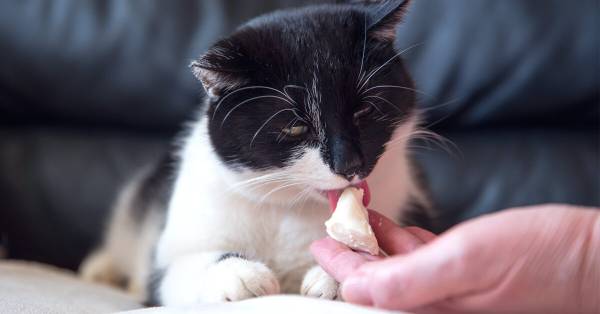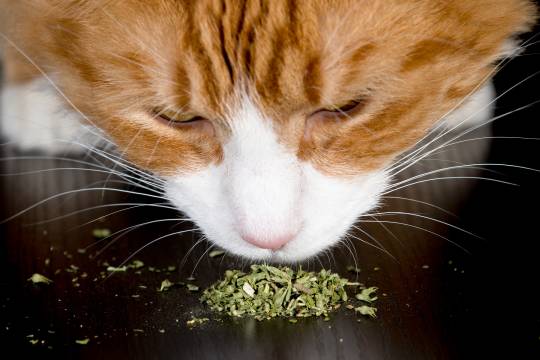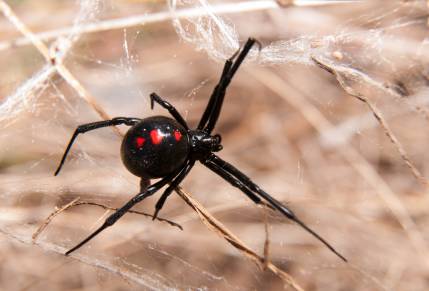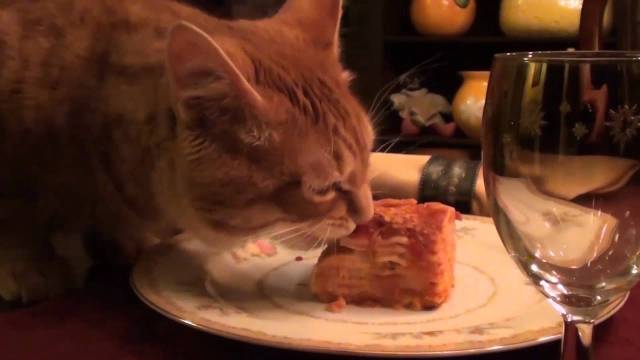
Connect with a verified veterinarian in minutes. Licensed vets are available 24/7 to answer your questions. No need to worry about your furry family member.
We’re all familiar with the image of a cat drinking a saucer of milk. This is one that’s been around for decades! And what about the cartoon cat, Garfield? He loves lasagna, which is filled with cheese! While these are common images, are dairy products like cheese really healthy for cats?
Has your cat eaten some cheese? Are you worried the cheese will make your cat sick? If so, then you’ve come to the right place.
In this article, we’ll take a look at cheese and whether or not it can make a cat sick. Let’s get started!
What is Cheese?
Cheese is a dairy product, which means it is usually made with cow’s milk, as well as a starter culture, salt, and an enzyme called rennet. History says that cheese has been around for over 4,00 years! Why did ancient people start making cheese? Most scientists believe cheese resulted from a mistake that was made with milk. Ancient people, not being ones to throw anything away, tried the cheese and liked it. Now it’s a very popular food all around the world!
Cheese comes in many varieties and flavors. It can be made with other types of milk (such as goats or sheep), include mold and also contain other substances like fruit and flavorings. But what happens if a cat eats cheese? Will cheese make a cat sick?
Cheese & Cats
Many cats love to eat cheese. They will sit and beg or even steal a piece when you’re not looking! The good news is that cheese is not toxic to cats. However, it isn’t really good for them and can still make them very sick.
The reason cheese can make cats sick is that most felines are lactose intolerant. This means they don’t have the right enzymes to digest dairy products. If a cat is lactose intolerant and eats cheese, she could develop diarrhea and vomiting.
Cheese is also high in fat, which is bad for cats. One small piece now and then may not hurt your fur baby; however, on a regular basis, cheese could lead to obesity in your cat. This can then lead to other health issues such as heart problems, diabetes, and an increased risk of cancer.
So, if your cat has eaten a small piece of cheese, chances are she will be OK. However, if she’s eaten a large portion of cheese, then it’s a good idea to call the vet. There’s a chance your cat could develop severe diarrhea and vomiting. This is something that should be treated by the vet in order to avoid dehydration and other symptoms.
It’s OK for your cat to have a very small piece of cheese now and then but be sure not to make it a regular habit. It’s really not good for your feline companion!
Connect with a verified veterinarian in minutes. Licensed vets are available 24/7 to answer your questions. No need to worry about your furry family member.

Rebecca MacMillan, BVetMed BSAVA PGCertSAM MRCVS
This article has been reviewed and approved by an independent Veterinarian: Rebecca is a companion animal vet who has always had a passion for writing and client communication. Since her graduation from the Royal Veterinary college in 2009 she has gained a wealth of experience in first opinion small animal practice, in both clinical and managerial roles. She currently works in the South West and deals with a variety of routine and emergency appointments, but particularly enjoys medicine cases. Outside of work and writing, she enjoys spending time with her family, including her bouncy flat coated retriever George!
Review symptoms, medications & behavior to keep your pets healthy with a Vet Online in just minutes.
Ask a Vet Live Now




